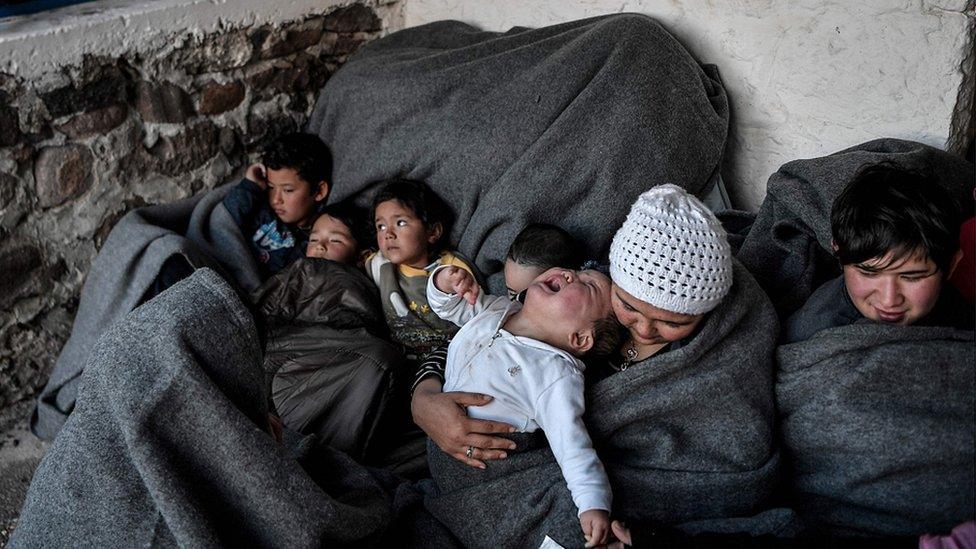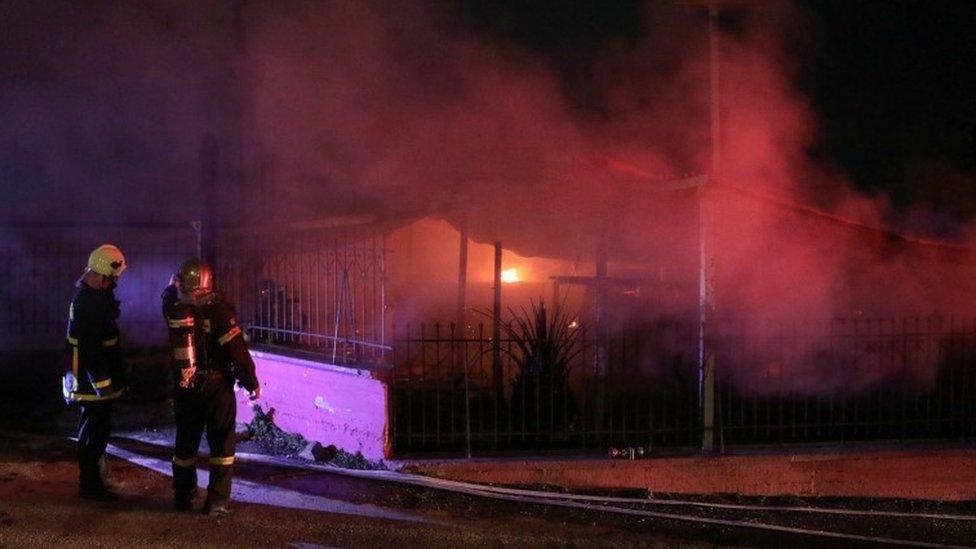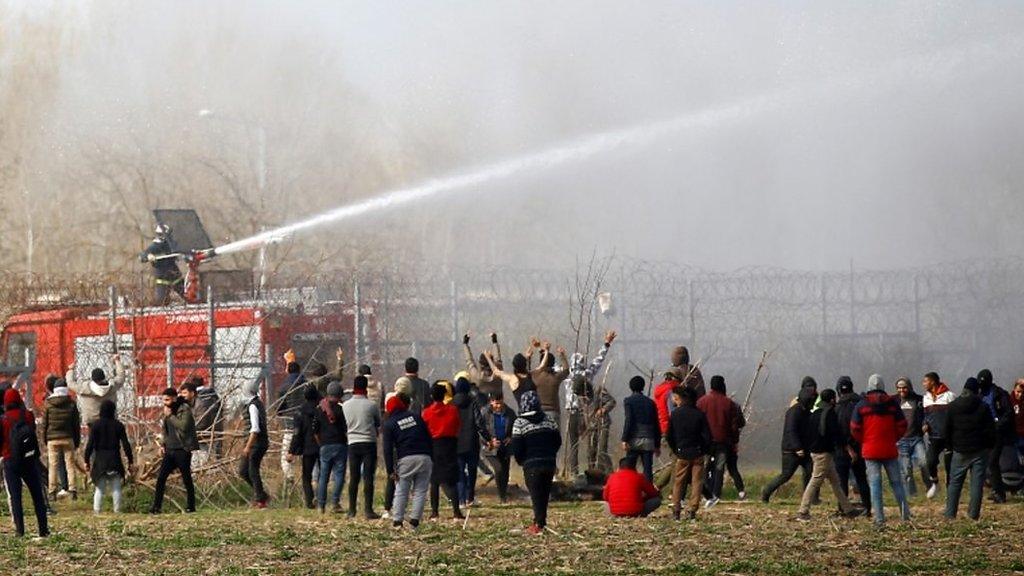EU to take in some child migrants stuck in Greece
- Published

Child migrants on Lesbos: Conditions are grim in the island's overcrowded camps
Five EU countries have agreed to take in some migrant children who are stuck in Greece, amid continuing tension on the Greek-Turkish border.
European Commission President Ursula von der Leyen thanked Finland, France, Germany, Luxembourg and Portugal.
The numbers per country have not been announced yet - German media spoke of up to 1,500 in total. They are children categorised as unaccompanied and/or very sick.
Greece's migrant camps are overcrowded.
Tens of thousands of migrants and refugees are stuck at Turkey's land border with Greece, where Greek border guards have fired tear gas and water cannon to keep them out.
Many are Syrians fleeing the civil war, but there are also Afghans, Pakistanis and West Africans seeking a new life in the EU.
In addition, in the past week more than 1,700 have landed on Lesbos and some other Greek Aegean islands on boats from Turkey. Some angry locals have resorted to violence on Lesbos, where existing migrant camps are squalid and struggling to cope.
Turkish President Recep Tayyip Erdogan will hold talks in Brussels on Monday evening with European Council President Charles Michel and Commission President von der Leyen.
Water cannon and tear gas used at the Turkey Greece border
At a news conference, Ms von der Leyen said Turkey must move the asylum seekers away from the land border, as part of a solution to the migrant crisis.
But she also said "we expect fundamental rights to be upheld, including the right to asylum".
She was apparently reminding Greece of its responsibilities, after the authorities there, struggling with the new influx, decided to suspend handling any new asylum claims for a month.


The latest surge in numbers at the Greek border came after Turkey announced last weekend that it would no longer stop them trying to enter Greece.
A 2016 deal with the EU aimed at curbing illegal migration from Turkey is under severe strain.
The EU is anxious to prevent a repeat of the 2015 crisis, when about a million asylum seekers reached Central Europe via Greece and the Balkans.
Children told the BBC they don't have enough food and are sleeping in the open
Turkey has urged the EU to do much more to ease the refugee burden, as it is already housing 3.7 million Syrian refugees in camps, while another million Syrians are desperate to get in, having fled fighting in the Idlib area.
Ms von der Leyen said "we recognise Turkey is doing a great deal, looking after millions of refugees, with our help.
"We need to talk very clearly about the fact that what happened last weekend cannot happen again. We need a future-proof strategy to ensure such escalations don't happen again."
- Published7 March 2020

- Published7 March 2020
